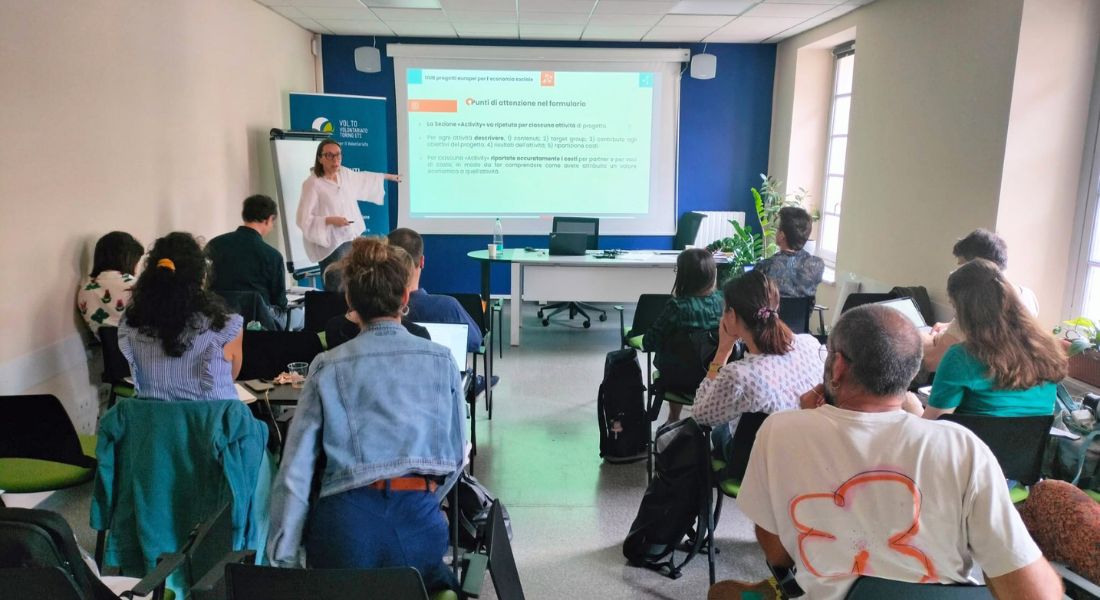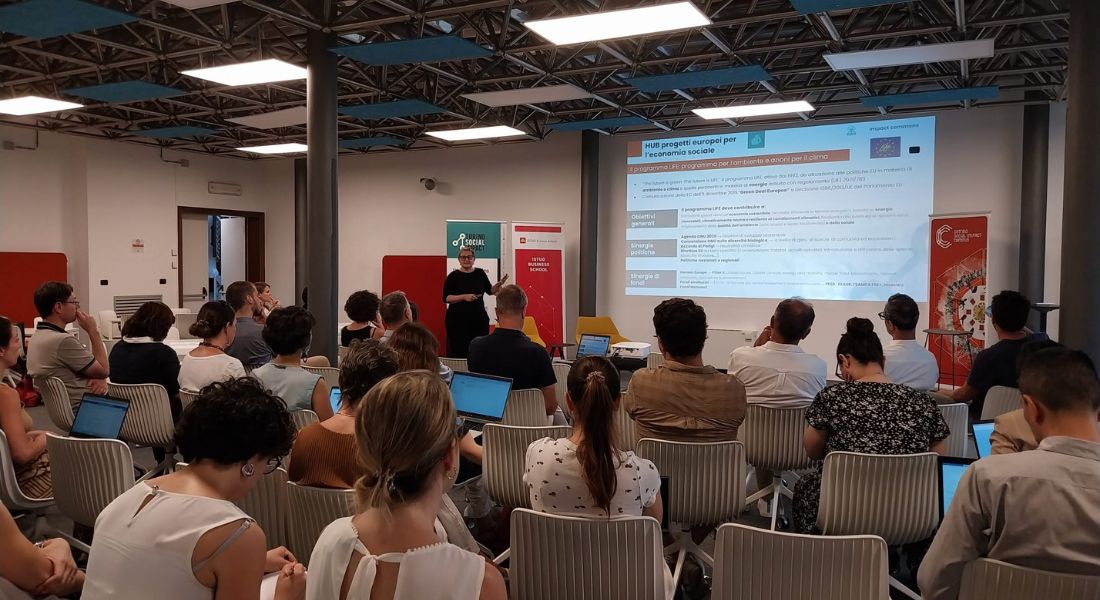With the start of the new year, the activities of the European Projects HUB for social economy are resuming. This initiative is carried out in co-design with Weco Impresa Sociale, with the support of the Chamber of Commerce of Turin and the Compagnia di San Paolo Foundation.
On Wednesday, January 15, a webinar was held dedicated to the Erasmus+ Program, undoubtedly the most well-known among the European Union programs. After supporting partners in presenting applications for small-scale partnership projects over the past two years, the European Projects HUB took the opportunity to launch a capacity-building meeting dedicated to Cooperation Partnerships (KA220). These partnerships involve larger-scale collaborations, more ambitious goals and results to achieve, greater resources, and also increased project complexity.
The webinar, led by Maria Chiara Pizzorno and Gaia Bacin from Weco Impresa Sociale, was attended by 10 organizations from the Torino Social Impact network. The capacity-building program will continue in the coming weeks through individual support sessions, allowing interested parties to share their project ideas with experienced project designers who have been working with European projects for years and can provide valuable assistance throughout the application process.
The Erasmus+ Program
The Erasmus program, established in 1987 as a European Union student mobility program, was transformed in 2014 into Erasmus+, a simplified program that combines all the previous EU funding mechanisms in education, training, youth, and sport, including the Lifelong Learning Program (Comenius, Erasmus, Leonardo da Vinci, Grundtvig), Youth in Action, and five international cooperation programs (Erasmus Mundus, Tempus, Alfa, Edulink, and the program for cooperation with industrialized countries).
Under this program, projects can be submitted under three key actions (KA):
- KA1: Individual mobility for learning purposes
- KA2: Cooperation for innovation and the exchange of good practices (divided into subsections: Adults, Youth, Sport, etc.)
- KA3: Support for policy development and cooperation
The 2021-2027 program focuses on several priorities, in particular:
- Social inclusion
- Environmental sustainability
- The digital transition
- Promoting youth participation in democratic life
Popular
 “Metrics of social impact in… 1 August 2024
“Metrics of social impact in… 1 August 2024 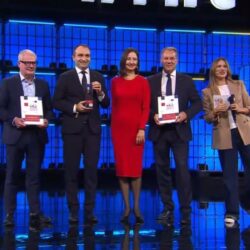 Turin is the 2024 European Capital of Innovation (iCapital) 14 November 2024
Turin is the 2024 European Capital of Innovation (iCapital) 14 November 2024  “Foundations and Principles of Solutions… 27 May 2024
“Foundations and Principles of Solutions… 27 May 2024  Webinar “Fundamentals and principles of… 17 May 2024
Webinar “Fundamentals and principles of… 17 May 2024 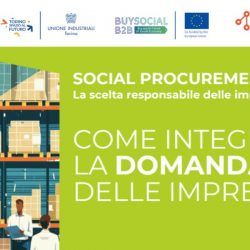 Social Procurement, the Responsible Choice for… 24 May 2024
Social Procurement, the Responsible Choice for… 24 May 2024 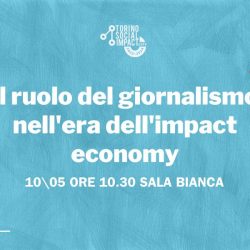 Salone del Libro 2024: Guests of the Event… 24 April 2024
Salone del Libro 2024: Guests of the Event… 24 April 2024 

